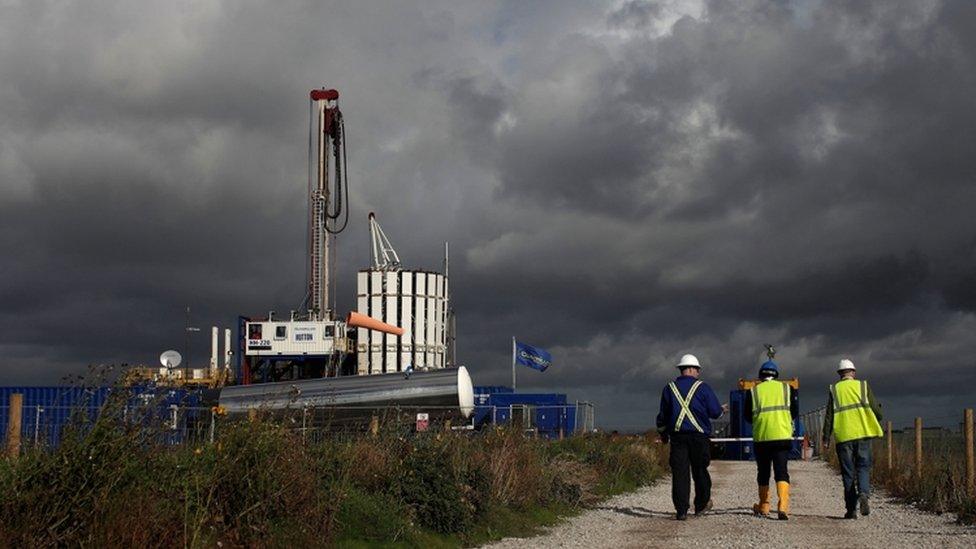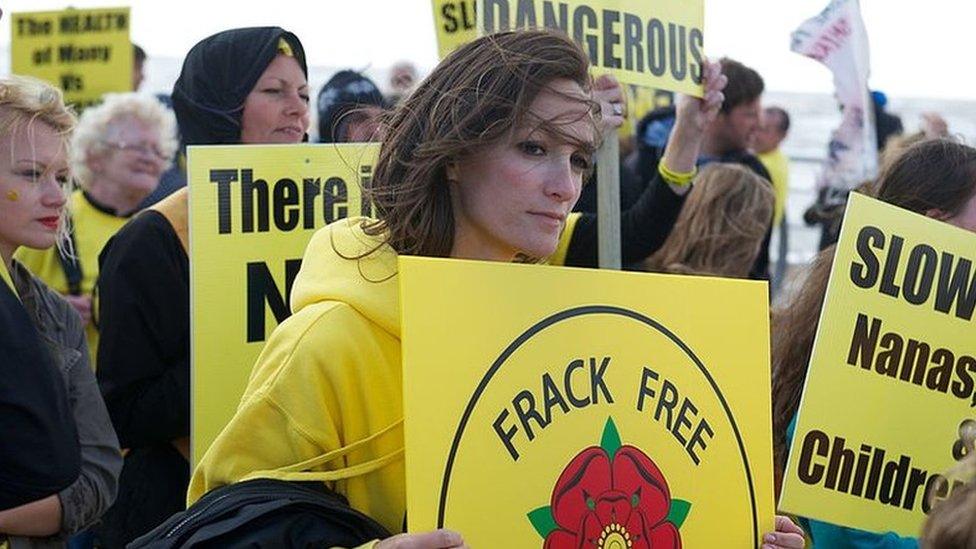Mapuche community in Argentina fights fracking site
- Published
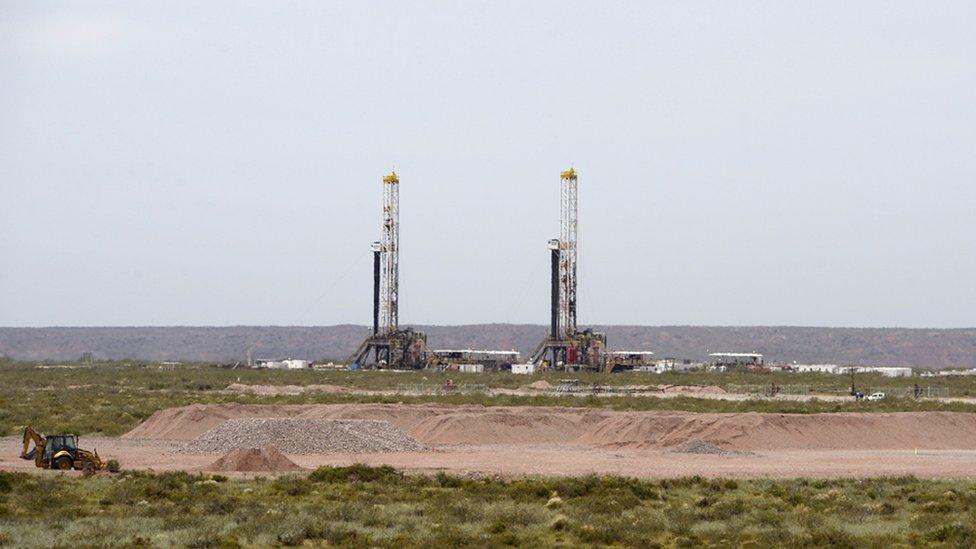
Vaca Muerta is a shale oil reservoir located in the Patagonian province of Neuquen
The deep red craggy hills of Vaca Muerta, or Dead Cow, rise up against the horizon.
This site produces more shale gas than any other place in the world, outside the United States.
Fracking could provide Argentina with cheap energy for generations, but Mapuche indigenous communities who live here say it is polluting their land.
What is fracking and why is it controversial?
Susana Campo is a Mapuche goat farmer.
Last year, she says, 60 of her baby goats were born without hair. A week later they died.
'Enslaved land'
She thinks fracking has contaminated the groundwater.
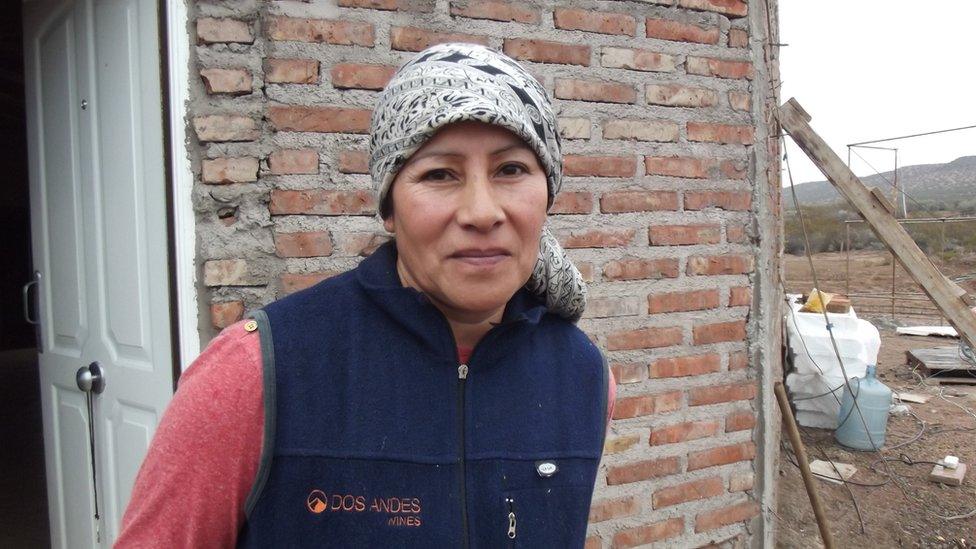
Susana Campo says her kid goats were born without hair
"The animals drank the water and then they gave birth to kids with just skin, no hair. That's never happened before."
Her sister Josifa say the water has made her sick. "I've had stomach aches. I've also vomited.
"We know it's because the water is contaminated, but we have to continue drinking this water.
"Poor people can't afford to buy water."
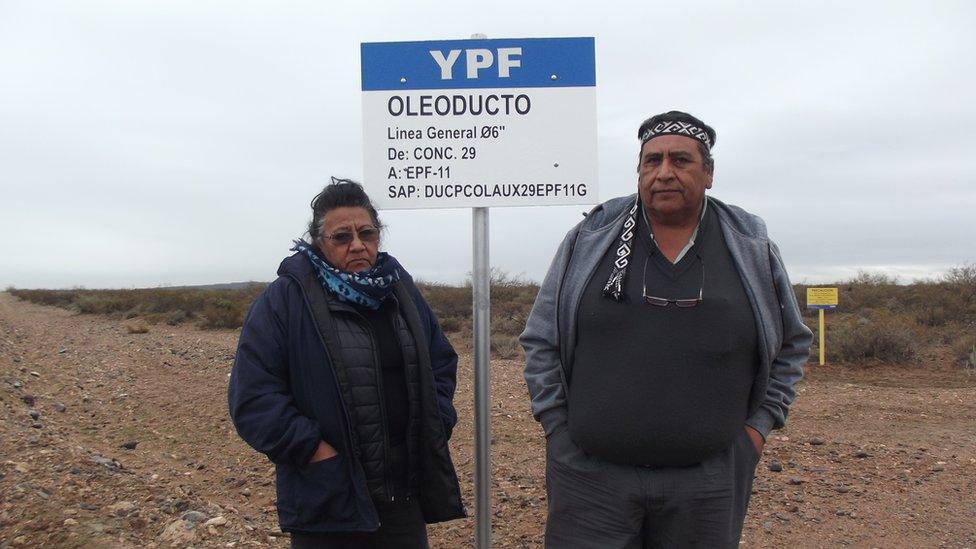
Josifa Campo and her brother Albino say locals are angry
Albino Campo is the leader, or lonko, of this Mapuche community called Lof Campo Maripe.
"The Mapuche people are angry. We feel like they have enslaved our land. It's as if someone came into your house without asking.
"They have contaminated everything," says Mr Campo.
His community is an extended family of 125 people living on farms dotted over 11,000 hectares of land, although they only have a legal title to a small part of it.
They have lived here since their grandparents migrated from Chile in 1919.
There are five other Mapuche communities in this region, together comprising about 1,000 people.
Huge investment
Fracking involves injecting thousands of litres of water, chemicals and sand deep into the earth at high pressure to release gas.
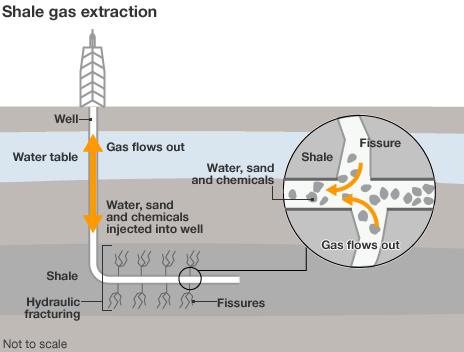
Fracking work began here in 2010 and since then, many foreign oil companies have bought concessions to drill gas wells.
US oil company Chevron has invested $2.5bn (£1.9bn) in Vaca Muerta as part of a joint fracking project with Argentina's state-owned oil company YPF.
So far, the YPF-Chevron partnership has drilled 420 wells and it plans to drill 200 more over the next two years.
The two companies plan to invest a total of $16bn dollars in fracking here.
'No signs of contamination'
Turkeys and chickens scurry around a farm belonging to Albino Campo's son.

Members of the Mapuche community are worried about their livestock
A well in the farmyard contains a long pipe to pump up the water.
The pipe is covered with a greasy black substance and when the water is deposited in the bucket there is a greenish-brown residue in the bottom.
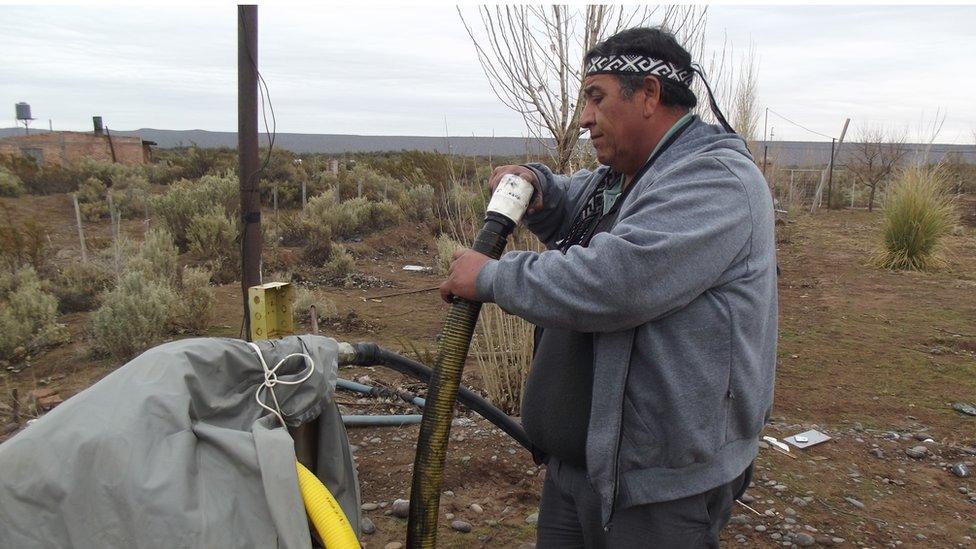
Albino Campo says the water in the well used to be clear
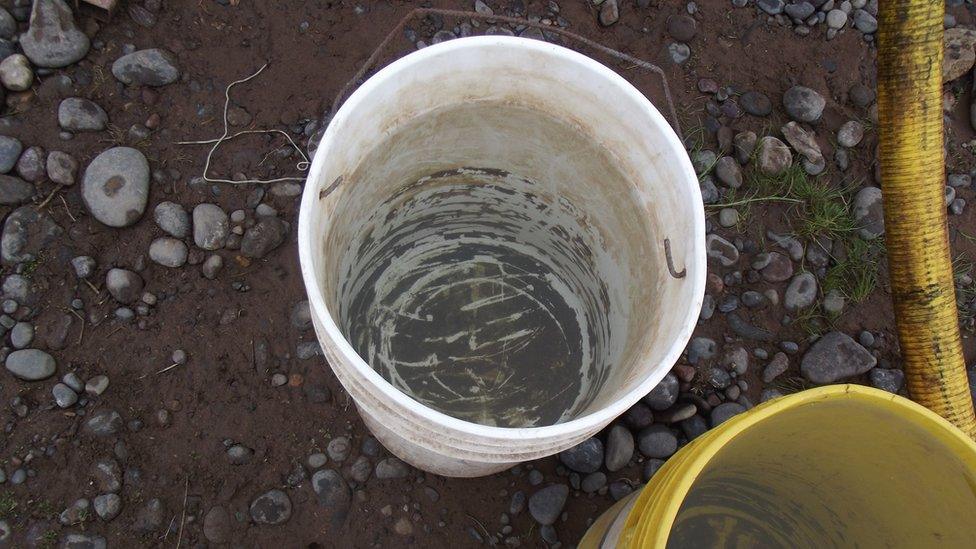
When Albino draws water from the well, a residue is left at the bottom of the bucket
"A year ago, this water was crystal clear," says Albino Campo. "This is how it comes out now."
The BBC asked Chevron for a comment but they told us to speak to their operating partner, YPF.
Juan Garoby, an executive manager of YPF, says there is no evidence that fracking has contaminated the water.
He says that the gas in Vaca Muerta is taken from a depth of 3,000m and the water being drawn by locals is only 300m under the ground so the two are separated by a big expanse of rock and layers of earth.
When a well is drilled, the hole is cased in steel and then surrounded with cement.
Another two layers of iron casing and cement are then added in order to isolate it from the groundwater.
"There is continuous monitoring of the water by the provincial environmental agency and it has found no signs of contamination," he says.
According to Mr Garoby, there are no fracked wells near Mapuche animal farms.
Untapped potential
He also says that Vaca Muerta is a great opportunity for Argentina, a net importer of energy, to become self-sufficient.
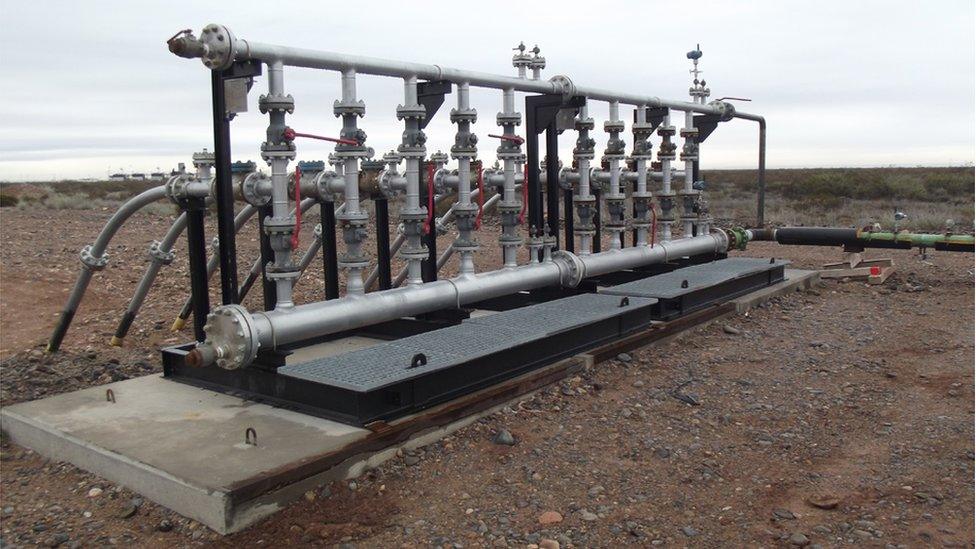
Juan Garoby of YPF says fracking wells pose no risk
The US Energy Information Administration estimates that Argentina has the world's largest recoverable reserves of shale gas after China.
Pro-government Congressman Eduardo Amadeo also thinks fracking is vital for Argentina's future.
"Argentina needs oil and gas. You cannot stop production for 45 million people because one or two thousand people feel that their rights are affected," he says.
But Martin Alvarez of the campaign group Observatorio Petrolero Sur says that fracking not only poses an environmental risk to Mapuche communities, but to the wider rural population of 54,000 people in the province and to residents of the provincial capital, Neuquen.
The group is calling for a halt to fracking on indigenous territory, farming land, nature reserves, urban areas and sites near water sources such as rivers, lakes and lagoons.
Juan Garoby says these restrictions are not necessary because fracking is safe.
"If you take the precautions you need to take and if you are careful about isolating the surface water, there shouldn't be any problem about developing in any area.
"It's just a matter of being conscious and having the right environmental policies in order to have the minimum impact on the environment."
- Published19 July 2016
